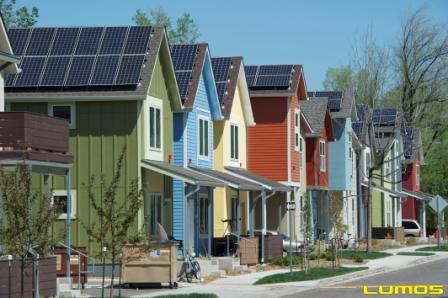Proved – International Energy Agency (IEA) is Always Radically Wrong on Solar Energy Forecasting
June 13, 2017Automobile Giants Look To Enter Electric Utility Space With Their Second-hand Batteries
June 15, 2017Solar Self-consumption in Europe
Europe has been instrumental in making solar energy the most cost competitive energy source in the world today. The generous feed-in-tariffs market driven subsidy model introduced by Germany led to an explosive growth of solar demand and supply, eventually leading to the sharp decline in the cost curve and a huge jump in solar panel capacity in China. Other European states such as Spain and Italy were also big demand drivers before 2010 when solar energy prices were relatively high. The pro-green sentiment, as well as the high electricity prices, contributed to a solar boom in these countries. However, after 2012, demand in these countries have declined as the penetration of solar energy has increased with the overall energy demand not increasing. Also, the subsidies for solar energy were reduced drastically as most countries met or exceeded the targets that they had set for solar energy.
Related stories:
Europe Further Extends Trade Duties On Unfair Chinese Solar Panels
Despite Price Controls on Chinese Imports, European Solar Manufacturing Declines To A Pitiable State
Now a new second phase of solar demand has started in these countries driven by “self-consumption” which is basically the use of solar energy generated from home solar panels by consumers themselves without exporting it to the grid or worrying about getting FITs. Solar energy generated at home has become cheaper than the retail prices of electricity making a great economic case for “self-consumption” in countries such as Italy, France, Spain, and Germany.
French utility giant is leveraging this trend and introduced a new service offering “Mon Solieil & Mo” in which it offers a solar system with or without storage to residential customers for 20 years. The utility wants to use its existing relationships with 25 million customers in order to sell this new “self-consumption” product cum service. EDF claims that with an average 60% self-consumption rate for 3kW solar systems, its new smart management solution can bring this up to 80%. Buoyed by the success of its system, it has also introduced a new product “Notre Soleil & Nous” which allow people living in a block or group of houses to produce their own energy on just one single roof and share it via another smart management solutions.
Self-consumption is both a threat and opportunity for utilities. Some utilities such as Engie are also starting to provide solar energy services either on their own or by partnering with smaller companies or through acquisitions.

